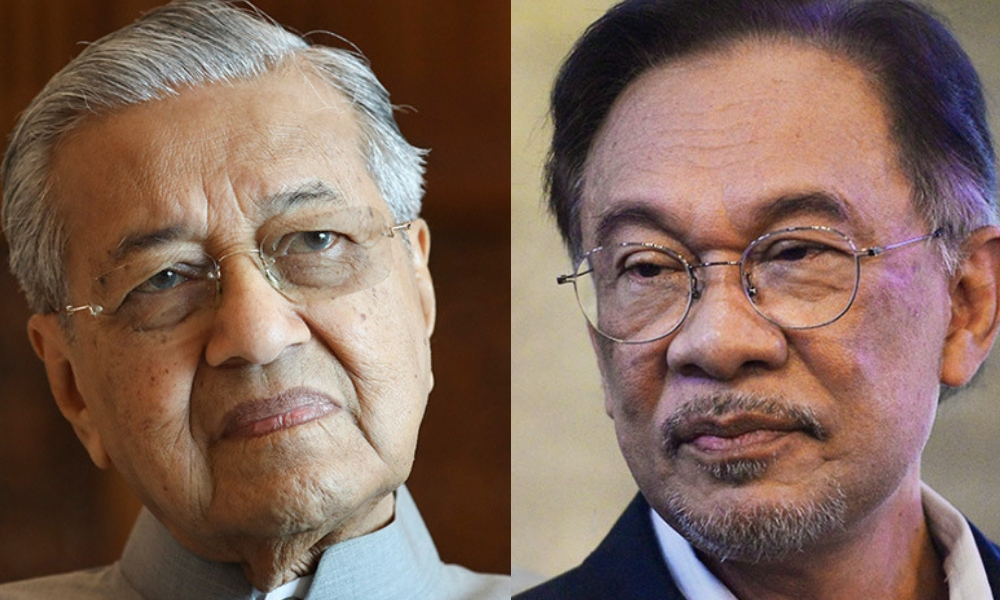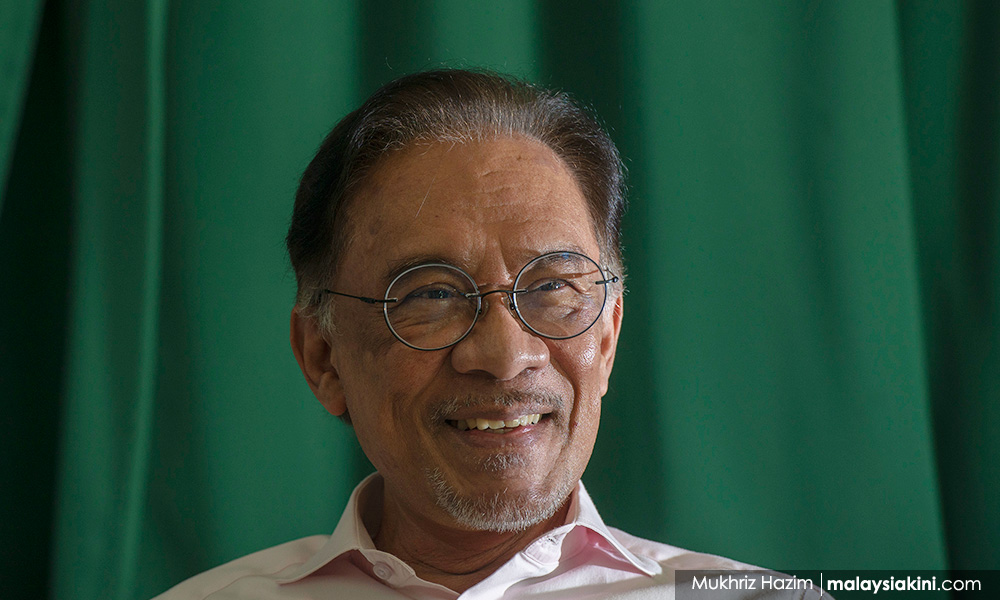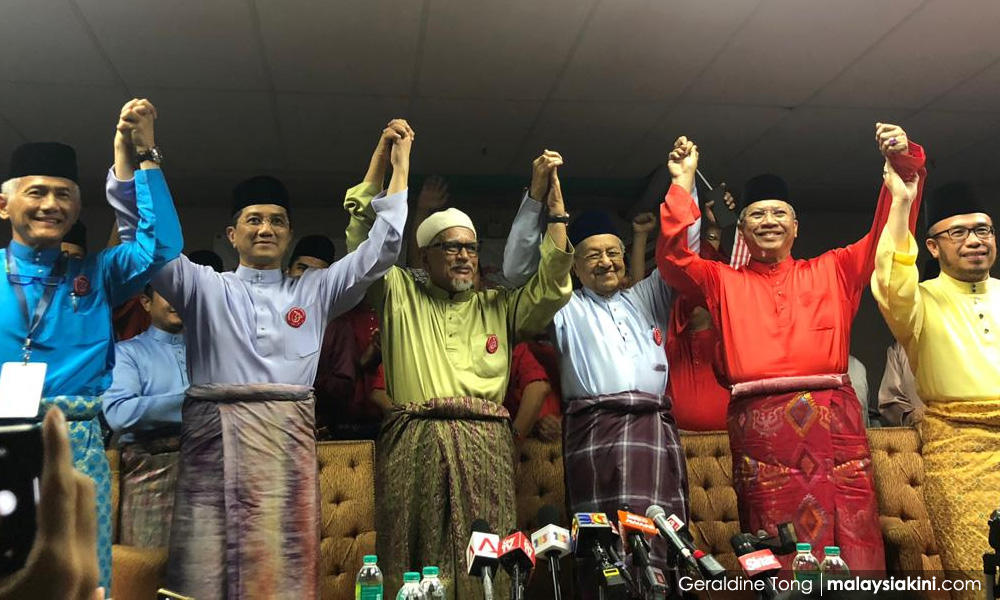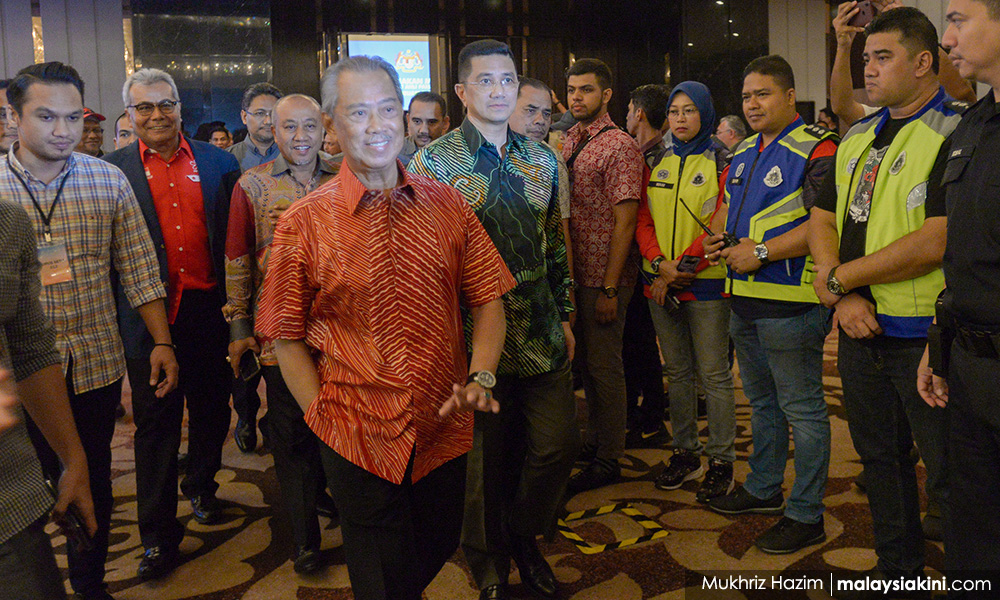
Bersatu supreme council member Wan Saiful Wan Jan has revealed that the party's former chairperson Dr Mahathir Mohamad had never wanted to see Anwar Ibrahim succeed him as prime minister.
In an essay, Wan Saiful said Mahathir had made his intention clear during various Bersatu leadership meetings.
"In various closed-door discussions and meetings after GE14 attended by this author, Mahathir was both adamant and consistent that he did not want to see Anwar succeed him as prime minister despite his public statements (to the contrary).
"To Mahathir, Anwar is someone who would neither champion the Malays nor defend the privileges accorded to ethnic Malays by the Federal Constitution.
"Mahathir also believed that Anwar's plans could be thwarted if the three major Malay parties, Bersatu, Umno and PAS, were brought together so that a new Malay-led government could be formed - doing away with the Chinese-dominated DAP and the multiracial PKR in Pakatan Harapan in the process," he said.
Wan Saiful accused Anwar (photo, below) of adopting a "passive-aggressive" approach towards Mahathir as on one hand, Anwar would portray himself as someone who was not demanding a quick transition bot on the other, he refused to stop his supporters from demanding one.

"This passive-aggressive attitude shown by Anwar [...] weakened the Harapan administration and added to the perception that (the coalition) was divided," he said.
Wan Saiful's revelation was made in a 54-page essay published in The Institute of Southeast Asian Studies - Yusof Ishak Institute's "Trends in Asia" series, Volume 10, 2020.
It should be noted that Wan Saiful acknowledged early on in his essay that he had direct involvement in the subject matter and despite his best efforts, some personal bias could persist.
Planning initiated in early 2019
Overall, the essay provided an inside look at Bersatu's decision-making process prior to the fall of the Harapan government, primarily those made by Mahathir, who was mentioned 93 times in the article.
In comparison, key figures in the fall of the Harapan government were mentioned sparingly, including Muhyiddin Yassin who was mentioned 25 times followed by Azmin Ali (five times) and Hamzah Zainuddin (four times).
Much of the first-half of the essay described Malay unease with the Harapan government which was seen as dominated by "non-Malay parties" such as DAP and PKR.
This, coupled with the protracted squabbles over when Mahathir should step down to allow Anwar to succeed him, had led to a series of events resulting in Bersatu's exit from Harapan.
According to Wan Saiful, the Bersatu supreme council chaired by Mahathir, had in March or April of 2019 resolved that Larut MP Hamzah Zainuddin should initiate a dialogue between Bersatu, Umno and PAS on the possibility of collaboration.
He also claimed that Mahathir subsequently asked for a national congress to showcase his ability to unite the Malays which eventually resulted in the Malay Dignity Congress held on Oct 6, 2019.
"Mahathir delivered the keynote speech, after which he stood on the stage flanked by PAS president Abdul Hadi Awang and Umno secretary-general Annuar Musa, symbolising the coming together of the three main Malay parties under his leadership.
"Anwar, however, was not invited until the very last minute and did not attend," he said.

Wan Saiful described the Malay Dignity Congress as the "first fruit" of Bersatu's secret collaboration with Umno and PAS, with an active role by Mahathir.
Behind the scenes
In essence, Mahathir, said Wan Saiful, had succeeded in venturing out of Harapan to "embrace" both Umno and PAS at that congress despite they seemingly being political enemies.
"Perhaps most importantly, having successfully forged Muafakat Nasional and having successfully discredited Harapan, especially among the Malays, both Umno and PAS leaders accepted the invitation from Bersatu, through Hamzah Zainuddin as described earlier, to discuss uniting the Malay parties.
"This was a significant move because even though in public Umno and PAS portrayed Bersatu as an enemy, behind the scenes, negotiations were taking place at the highest level.
"Umno and PAS leaders did not just converse with Bersatu through Hamzah, they also maintained a cordial relationship with Mahathir himself by personally visiting him several times for private discussions," he said.
On the events in February before the collapse of the Harapan government, Wan Saiful said Mahathir had "changed his mind" on collaborating with Umno and making way for Anwar during a crucial Bersatu supreme council meeting on Feb 23.
Up to that point, according to Wan Saiful, Bersatu leaders were under the impression that Mahathir was seeking to forge a new Malay-led government.
Enter Muhyiddin
On Muhyiddin's role in the change of government, Wan Saiful said the former was forced to assume the role of acting Bersatu chairperson on Feb 24 after Mahathir vacated the position and that of the prime minister on the same day.

Muhyiddin (photo), as acting Bersatu chairperson, decided to implement the decision undertaken by Bersatu supreme council the day before to withdraw the party from Harapan.
"The most pressing issue he had to handle on that day was the fact that, with Mahathir's resignation as prime minister and Harapan still holding the majority in Parliament, the door suddenly became wide open for Anwar to claim that he held sufficient support to succeed Mahathir," he said.
According to Wan Saiful, Muhyiddin told a meeting of Bersatu leaders on March 3 that this move "saved" the party from having to accept Anwar as prime minister which was a situation that "neither Mahathir nor Bersatu wanted".
On how Muhyiddin became the prime minister, Wan Saiful said the former had received a public endorsement from Mahathir in February.
This, he said, had got the ball rolling for Muhyiddin to be nominated as prime minister and restore the original plan to create a Malay-led government.
The following day, Muhyiddin secured the numbers necessary to form a new government.
Wan Saiful concluded his essay by stating that Harapan's downfall was caused by Bersatu's quest to protect Malay interest, the party's pragmatism as well as Harapan's failure to don the "suit the political reality" which was to put Malay interests first instead of pursuing institutional reforms.
"From the whole episode, it is clear that any political party or coalition that wants to govern Malaysia cannot afford to ignore sentiments among the majority population.
"Outside of the 'Bangsar bubble', the Malays were not ready for the equality agenda perceived to be championed by DAP and to some extent, by PKR," he said. - Mkini



No comments:
Post a Comment
Note: Only a member of this blog may post a comment.